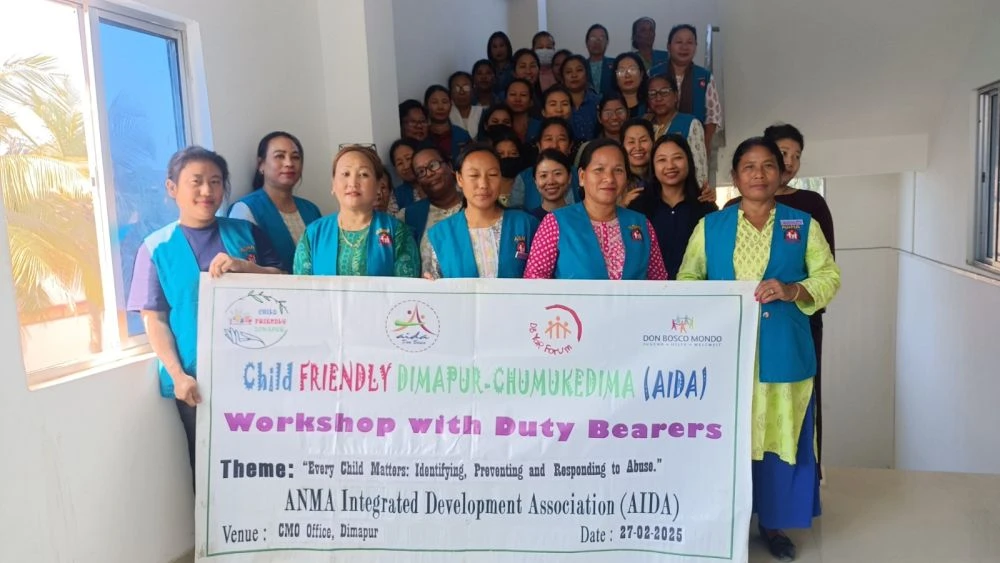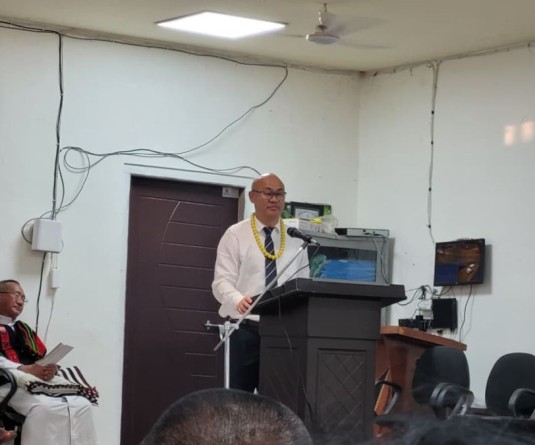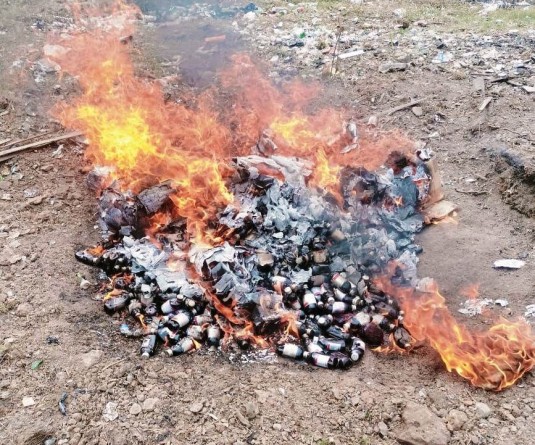K Ela, Director of Prodigals' Home, Dimapur with ASHA workers at the workshop on child rights and protection held in Dimapur.
.jpg)
DIMAPUR, FEBRUARY 28 (MExN): A two-day workshop on child rights and protection was conducted for ASHA workers from both urban and rural blocks of Dimapur on February 27 and 28. The event took place at the Chief Medical Officer's Office Conference Hall and was organized by the ANMA Integrated Development Association-Child Friendly Dimapur.
The workshop aimed to educate ASHA workers on recognizing and addressing cases of child neglect and abuse. The theme of the event, "Every Child Matters: Identifying, Preventing, and Responding to Abuse," focused on improving participants' knowledge and response strategies in child protection.
Ela, Director of Prodigals' Home, Dimapur, served as the resource person for the workshop. She led sessions on key topics such as child abuse and neglect, medical responsibilities in child protection, and how to identify signs of abuse.

Ela also discussed multidisciplinary approaches to child protection and provided real-life examples of cases of child neglect and abuse in Dimapur and Chümoukedima. She emphasized the importance of early intervention and informed participants about various support services available to children and women, including the Nagaland State Commission for Protection of Child Rights, District Child Protection Unit, Child Helpline, and local NGOs.
The legal frameworks governing child protection, including the POCSO Act, Juvenile Justice Act, and other related laws, were also covered during the sessions.
Garrol Lotha, Project Coordinator for AIDA-Child Friendly Dimapur, briefed the attendees on the organization's work across four Northeast states—Assam, Nagaland, Manipur, and Arunachal Pradesh. She introduced the concept of Child Friendly Dimapur and emphasized the United Nations Convention on the Rights of the Child's Four Guiding Principles. Lotha encouraged the participants to collaborate and contribute to creating child-friendly spaces in both urban and rural communities.
The workshop was interactive, with ASHA workers actively participating in discussions. A total of 82 ASHA workers and health workers attended the event.






